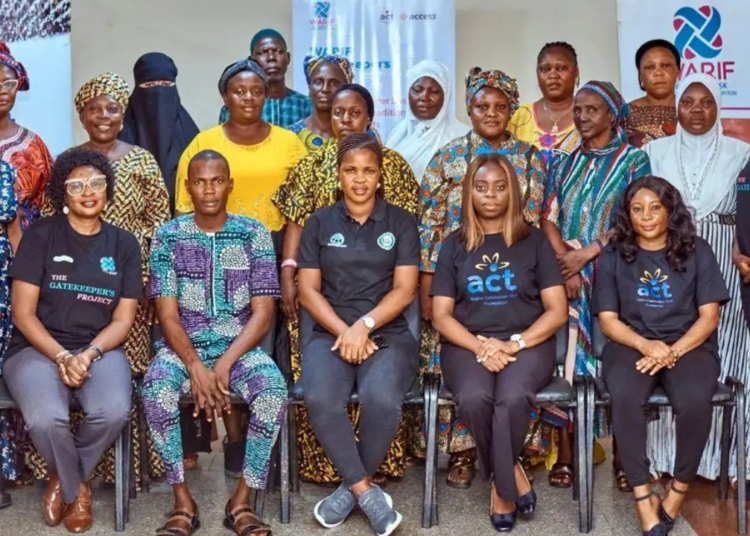A non-profit organisation focused on raising awareness and providing support to survivors of gender-based violence in Nigeria, Women at Risk International Foundation (WARIF) has trained 200 birth attendants as part of its gatekeepers’ project aimed at addressing the pervasive issue of rape and sexual violence.
This initiative, supported by the ACT Foundation, a grant-making organisation that supports local, national, and regional nonprofits working to address social, health, and environmental challenges across Africa, targets the protection of young girls and women in rural communities across four local government areas in Ogun State.
The project’s implementation commenced with strategic engagement with key stakeholders, including state actors such as the Ministry of Health, Ministry of Women Affairs and Social Development, Alternative Medicine Board, and Olabisi Onabanjo University Teaching Hospital Sexual Assault Referral Centre, as well as non-state actors represented by coordinators of birth attendant groups in the LGAs.
In a press statement made available to LEADERSHIP, Dr Kemi Dasilva-Ibru, the founder of WARIF, said these consultations aimed to secure commitment and support from governmental and non-governmental agencies and identify local resources conducive to achieving project objectives.
“Selected birth attendants underwent comprehensive training to serve as first responders to Sexual and Gender-Based Violence (SGBV) issues in their communities. A total of 200 birth attendants (181 female and 19 male) received training across the designated LGAs,” DaSilva-Ibru revealed.
Equipped with skills in identifying and documenting cases of GBV and providing counseling services, the founder disclosed that these trained birth attendants conducted weekly sensitisation and awareness activities in their clinics. “Also, they reached out to social and religious gatherings.”
Through these efforts, information on GBV reached 8,130 individuals (6,587 females and 1,543 males), contributing to heightened awareness within the communities. A total of 203 GBV cases were documented during project implementation, with domestic violence (124 cases) ranking highest, followed by Sexual Assault (51 cases) and Rape (28 cases).





